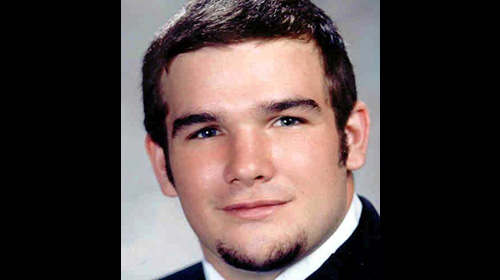
Tennessee State Senator Stacey Campfield is well known for such antics as and . But perhaps Campfield’s greatest source of notoriety is the “Don’t Say Gay” bill, a nasty proposed law he’s introduced and reintroduced every chance he’s gotten during his nine years in the legislature. In its earlier incarnations, the bill would have banned any discussion of sexuality except for heterosexuality in public schools up through the eighth grade. This week, , with a misleading new name (the “”) and a particularly disturbing new addition: The bill now seeks to require school nurses and guidance professionals to notify the parents of any student they work with who identifies as gay or questioning.
Campfield claims that the proposal is meant to protect students, because What’s truly dangerous is forcing young people to disclose their sexual orientation to their parents, because parents too often react to learning their child’s sexual orientation with rejection and even violence. A found that about 40 percent of youth served by these agencies are LGBT, and almost half of those students had been kicked out of their homes. found that LGBT youth are 30 percent more likely to suffer from physical abuse at the hands of their parents than other adolescents.
Forcing LGBT youth to disclose their sexual orientation to their parents when they’re not ready can have deadly consequences as well. Here’s a name I want Stacey Campfield to learn and keep in mind: Marcus Wayman.
Marcus was a rural high school football star who was questioned by Minersville, Pennsylvania police after he was found sitting in a parked car with a male friend in April 1997. The officers had found condoms while searching the car and arrested the boys for under-age drinking. At the police station, one officer lectured the two teens about the Bible and ordered Marcus to tell his deeply religious family that he was gay, adding, Marcus, terrified, told his friend he was going to kill himself. After he was released from police custody that night, Marcus went home, found the keys to the family gun cabinet, and shot himself in the head. He was just 18 years old.
Represented by the ACLU, Marcus’s mother sued the town and the officers for police misconduct, discrimination, and violation of the right to privacy. During the case, a federal court ruled that police violated Marcus’s constitutional rights when they threatened to tell his family that he was gay. The court rejected the argument that lesbians and gay men did not have a protected right to privacy, and ruled instead that “[i]t is difficult to imagine a more private matter than one's sexuality...” The case went on to settle, with the police department paying Marcus’s mother $100,000 – nowhere near the value of a young life.
A few years later, in another ACLU case, a different federal court ruled that a lesbian teenager whose school outed her to her mother had also stated valid claims for violation of her constitutional right to privacy and other rights. Fortunately, in that case, our plaintiff’s mother ended up accepting her daughter. But unless Stacey Campfield has psychic powers we have yet to hear about, there’s no way for him to know that all the students his bill could forcibly out to their parents would be safe from their parents’ reactions – or from their own fear of those reactions. Young people’s privacy must be protected, and they must be allowed to come out to their families at their own pace, when they are ready. And if even one LGBT teen in Tennessee dies as result of this shortsighted, mean-spirited, and quite possibly unconstitutional bill, his or her blood will be on Stacey Campfield’s hands.
Learn more about LGBT rights and other civil liberties: Sign up for breaking news alerts, , and .

